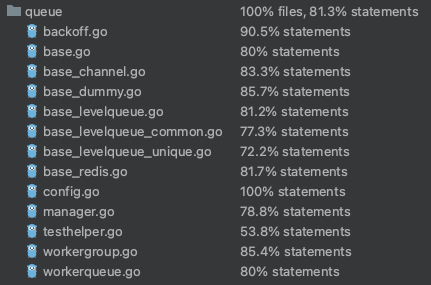|
|
|
|
// Copyright 2020 The Gitea Authors. All rights reserved.
|
|
|
|
|
// SPDX-License-Identifier: MIT
|
|
|
|
|
|
|
|
|
|
package stats
|
|
|
|
|
|
|
|
|
|
import (
|
|
|
|
|
"context"
|
|
|
|
|
"path/filepath"
|
|
|
|
|
"testing"
|
|
|
|
|
"time"
|
|
|
|
|
|
|
|
|
|
"code.gitea.io/gitea/models/db"
|
|
|
|
|
repo_model "code.gitea.io/gitea/models/repo"
|
|
|
|
|
"code.gitea.io/gitea/models/unittest"
|
|
|
|
|
"code.gitea.io/gitea/modules/queue"
|
|
|
|
|
"code.gitea.io/gitea/modules/setting"
|
|
|
|
|
|
|
|
|
|
_ "code.gitea.io/gitea/models"
|
|
|
|
|
|
|
|
|
|
"github.com/stretchr/testify/assert"
|
|
|
|
|
)
|
|
|
|
|
|
|
|
|
|
func TestMain(m *testing.M) {
|
|
|
|
|
unittest.MainTest(m, &unittest.TestOptions{
|
|
|
|
|
GiteaRootPath: filepath.Join("..", "..", ".."),
|
|
|
|
|
})
|
|
|
|
|
}
|
|
|
|
|
|
|
|
|
|
func TestRepoStatsIndex(t *testing.T) {
|
|
|
|
|
assert.NoError(t, unittest.PrepareTestDatabase())
|
|
|
|
|
setting.CfgProvider, _ = setting.NewConfigProviderFromData("")
|
|
|
|
|
|
|
|
|
|
setting.LoadQueueSettings()
|
|
|
|
|
|
|
|
|
|
err := Init()
|
|
|
|
|
assert.NoError(t, err)
|
|
|
|
|
|
|
|
|
|
repo, err := repo_model.GetRepositoryByID(db.DefaultContext, 1)
|
|
|
|
|
assert.NoError(t, err)
|
|
|
|
|
|
|
|
|
|
err = UpdateRepoIndexer(repo)
|
|
|
|
|
assert.NoError(t, err)
|
|
|
|
|
|

Rewrite queue (#24505)
# ⚠️ Breaking
Many deprecated queue config options are removed (actually, they should
have been removed in 1.18/1.19).
If you see the fatal message when starting Gitea: "Please update your
app.ini to remove deprecated config options", please follow the error
messages to remove these options from your app.ini.
Example:
```
2023/05/06 19:39:22 [E] Removed queue option: `[indexer].ISSUE_INDEXER_QUEUE_TYPE`. Use new options in `[queue.issue_indexer]`
2023/05/06 19:39:22 [E] Removed queue option: `[indexer].UPDATE_BUFFER_LEN`. Use new options in `[queue.issue_indexer]`
2023/05/06 19:39:22 [F] Please update your app.ini to remove deprecated config options
```
Many options in `[queue]` are are dropped, including:
`WRAP_IF_NECESSARY`, `MAX_ATTEMPTS`, `TIMEOUT`, `WORKERS`,
`BLOCK_TIMEOUT`, `BOOST_TIMEOUT`, `BOOST_WORKERS`, they can be removed
from app.ini.
# The problem
The old queue package has some legacy problems:
* complexity: I doubt few people could tell how it works.
* maintainability: Too many channels and mutex/cond are mixed together,
too many different structs/interfaces depends each other.
* stability: due to the complexity & maintainability, sometimes there
are strange bugs and difficult to debug, and some code doesn't have test
(indeed some code is difficult to test because a lot of things are mixed
together).
* general applicability: although it is called "queue", its behavior is
not a well-known queue.
* scalability: it doesn't seem easy to make it work with a cluster
without breaking its behaviors.
It came from some very old code to "avoid breaking", however, its
technical debt is too heavy now. It's a good time to introduce a better
"queue" package.
# The new queue package
It keeps using old config and concept as much as possible.
* It only contains two major kinds of concepts:
* The "base queue": channel, levelqueue, redis
* They have the same abstraction, the same interface, and they are
tested by the same testing code.
* The "WokerPoolQueue", it uses the "base queue" to provide "worker
pool" function, calls the "handler" to process the data in the base
queue.
* The new code doesn't do "PushBack"
* Think about a queue with many workers, the "PushBack" can't guarantee
the order for re-queued unhandled items, so in new code it just does
"normal push"
* The new code doesn't do "pause/resume"
* The "pause/resume" was designed to handle some handler's failure: eg:
document indexer (elasticsearch) is down
* If a queue is paused for long time, either the producers blocks or the
new items are dropped.
* The new code doesn't do such "pause/resume" trick, it's not a common
queue's behavior and it doesn't help much.
* If there are unhandled items, the "push" function just blocks for a
few seconds and then re-queue them and retry.
* The new code doesn't do "worker booster"
* Gitea's queue's handlers are light functions, the cost is only the
go-routine, so it doesn't make sense to "boost" them.
* The new code only use "max worker number" to limit the concurrent
workers.
* The new "Push" never blocks forever
* Instead of creating more and more blocking goroutines, return an error
is more friendly to the server and to the end user.
There are more details in code comments: eg: the "Flush" problem, the
strange "code.index" hanging problem, the "immediate" queue problem.
Almost ready for review.
TODO:
* [x] add some necessary comments during review
* [x] add some more tests if necessary
* [x] update documents and config options
* [x] test max worker / active worker
* [x] re-run the CI tasks to see whether any test is flaky
* [x] improve the `handleOldLengthConfiguration` to provide more
friendly messages
* [x] fine tune default config values (eg: length?)
## Code coverage:

2 years ago
|
|
|
assert.NoError(t, queue.GetManager().FlushAll(context.Background(), 5*time.Second))
|
|
|
|
|
|
|
|
|
|
status, err := repo_model.GetIndexerStatus(db.DefaultContext, repo, repo_model.RepoIndexerTypeStats)
|
|
|
|
|
assert.NoError(t, err)
|
|
|
|
|
assert.Equal(t, "65f1bf27bc3bf70f64657658635e66094edbcb4d", status.CommitSha)
|
|
|
|
|
langs, err := repo_model.GetTopLanguageStats(repo, 5)
|
|
|
|
|
assert.NoError(t, err)
|
|
|
|
|
assert.Empty(t, langs)
|
|
|
|
|
}
|